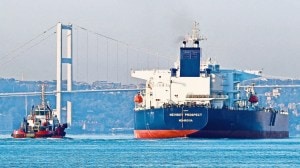Indian auto industry in John Kerry’s backlash net
It is now the Indian automobile industry’s turn to face the heat from US Democrat presidential candidate John Kerry. In a document list...

It is now the Indian automobile industry’s turn to face the heat from US Democrat presidential candidate John Kerry. In a document listing his priorities to resurrect US’ floundering economy, Senator Kerry said the proposed US-Thailand free trade agreement (FTA) is a bad idea because, ‘‘there is a danger that Japan, South Korea and India could use Thailand as a backdoor into the US automotive market.’’
Rules of origin, which are factored into FTAs, enforce minimum localisation requirements as a safeguard precisely against what Kerry calls ‘backdoor’ entry.
Even though Kerry expounds a level playing field in international trade, he added that, ‘‘this would undermine US leverage to negotiate reductions in tariff and non-tariff barriers (NTBs) in these countries that distort global auto markets and restrict the access of US exports to markets in these countries.’’
While Ford India director (marketing & sales) Vinay Piparsania declined to make a direct comment on Kerry’s campaign, he said, ‘‘International arrangements like FTAs have factors like rules of origin in place, to place the focus of the FTA on the two countries signing the agreement.”
ACMA President K.V Shetty feels Kerry’s fears of an Indian threat are misguided. ‘‘I do not agree that there is a threat. If the US has free trade agreement with countries in Latin America, what does it have to fear from Thailand? John Kerry has already made a backlash against BPO in India, so this view should be taken in right spirit’’. ‘‘The US likes access to other markets, but doesn’t like giving access to its markets to other countries. That’s the way it works for the US. Uncle Sam knows best — what works for it, works for the rest of the world,’’ another senior auto industry executive, who did not wish to be quoted, said.
US’s Big Three — Ford, GM and Chrysler — sell more than 95 pc of the 2.2 million pick-up trucks purchased in the US. The Japanese manufacturers are trying to chip away profitability and market shares of the Big Three.
In the US, Toyota has plans to manufacture 150,000 pick-ups, to be supplemented by another 90,000 units, while Honda plans to sell over 60,000 units and Nissan has announced plans to build 100,000 Titan pick-ups.
‘‘It is election rhetoric,’’ said an executive with a Japanese car company in India, which has a large manufacturing base in Thailand, calling Kerry’s new found grouse ‘‘an alarmist gimmick’’. ‘‘It may not be cost-effective to manufacture in Thailand as key inputs like steel and capital goods need to be imported’’.
Industry analysts say Indian manufacturers have a big domestic market to service, and there is virtually no possibility that they would start shifting their bases to Thailand.
Others in the auto industry shrugged it off as ‘‘too far-fetched’’.





- 01
- 02
- 03
- 04
- 05


























